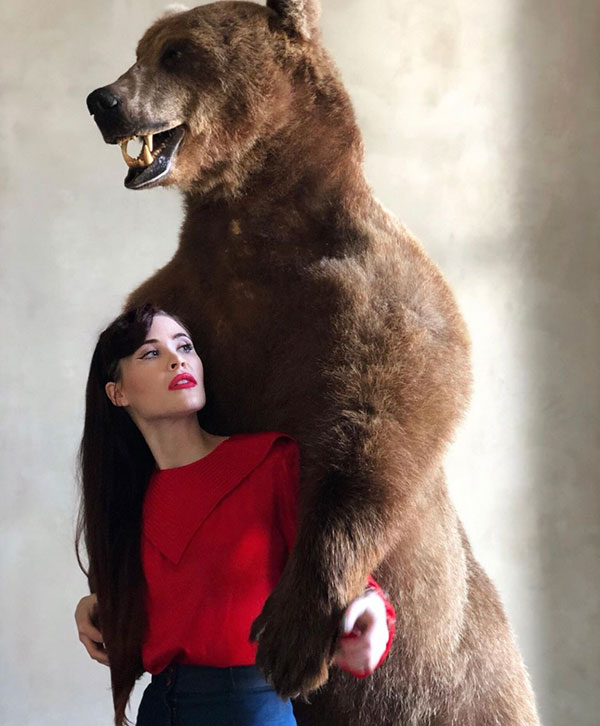
Executive MBA student Leslie Williamson (MBA ’25) is the owner of Leslie Dalton Taxidermy, which serves clients around the world with one-of-a-kind works of art.
The Freeman School’s Executive MBA program has long attracted unconventional students – doctors, engineers, government officials, entrepreneurs — but few have backgrounds as unique as Leslie Williamson’s.
Williamson (MBA ’25) is the owner of Leslie Dalton Taxidermy, an eight-year-old studio that serves clients around the world with one-of-a-kind pieces that combine the fleeting beauty of nature with the permanence of sculpture. At her studio in the Mid-City neighborhood of New Orleans, Williamson transforms ethically sourced wildlife like pheasants, parrots and peacocks into spectacular works of art.
“My clients are typically people who are looking for a piece to fill a decorative desire or as a substitute for a piece of art,” says Williamson. “Something that’s sculptural and that fits with what they envision for their home or room.”
Williamson first became interested in taxidermy about a decade ago. After earning a fine arts degree from St. Edward’s University, she spent several years working as an artist in Austin, Texas, but the cyclical work schedule of a gallery artist didn’t appeal to her. “I’m someone who really likes to be busy, so I sort of assessed what I really liked — which was science, anatomy, building and painting — and then thought about what I could do that involves those things and where I could be working all the time,” Williamson says. “I took a few classes at a museum just to dabble with taxidermy and discovered that I really liked it.”
Williamson eventually enrolled in the Advanced Taxidermy Training Center of NW Montana and completed a four-month course to earn her taxidermy license. She opened her studio in New Orleans in 2016, and the business grew by word of mouth.
While some taxidermists specialize in working for museums or mounting trophy pieces for hunters, Williamson occupies a special niche. She refers to herself as an “oddities” artist. Most of her business comes from referrals from designers seeking something unique for their clients’ homes.
“I typically consult with the client on what they envision, because a lot of people don’t really know what it is they want,” she explains. “It may be something decorative. It may be something exotic. It may be something that reminds them of their childhood. Or, just honestly, it may be a piece that fits into a room that they envision as having a beautiful piece of taxidermy in.”
While she’s done everything from a friend’s pet bunny to a seven-foot- tall Russian grizzly bear, Williamson prefers working with birds. Peacocks are a specialty.
“There was one year where I felt like I was a peacock factory,” she says. “I probably did 17. But I like it when I get to do something new. I recently did a scarlet ibis, which is something I’d never done before. That was fun.”
Williamson’s decision to pursue an MBA was initially driven not by her taxidermy work but by the prospect of taking on a new role in the family business. Following her mother’s retirement in 2022, Williamson joined Jung Realty Co., the 100-year-old family business founded by her great-great grandfather.
“I was interested in learning about the complexities of business,” says Williamson, who works for her uncle at the company. “I felt like I needed to get some formal education so I could be more effective in my current position.”
While taking on that new business role was her initial motivation for getting an MBA, Williamson says she was surprised to discover how applicable the program’s lessons are to her taxidermy business.
“A lot of what I’ve taken away from the program spans everything I’m doing,” she says. “How can I manage time better? How can I improve client relations? How can I improve procurement and my process? It’s given me a really good understanding of what I’m doing from a business perspective with taxidermy.”
After taking a break from taxidermy when she gave birth to her son and then continuing it as she navigated the simultaneous challenge of joining the family business and starting the EMBA program, Williamson says she expects to begin taking on new taxidermy projects in the near future.
“I’ve been able to challenge myself by taking on all these different things, and that’s given me a good idea of my capacity,” she says. “I can juggle more things than I thought I could and take on more projects, and I owe that knowledge to the Freeman EMBA program.”

